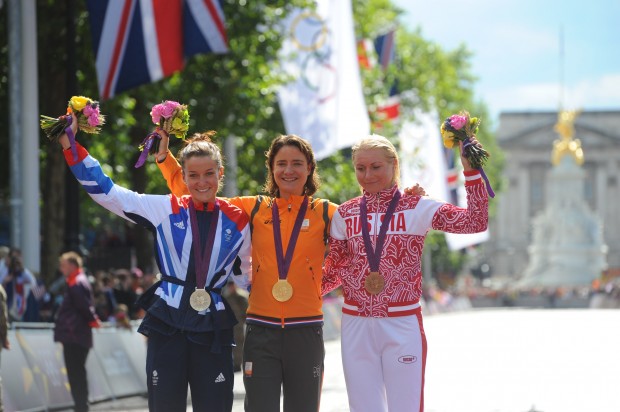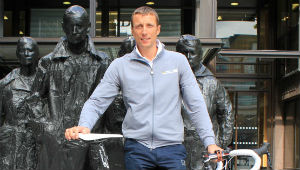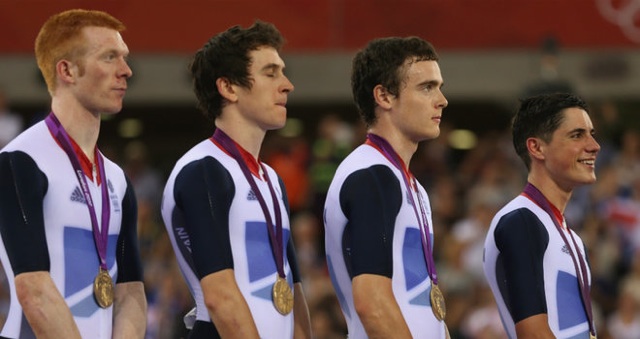Cycling has dominated the headlines in the opening two days of the Olympic Games in London.
Despite the valiant attempt of Mark Cavendish, Chris Froome, David Millar, Ian Stannard and Bradley Wiggins, a line-up described by the Tour de France champion as the strongest ever assembled for an Olympic road race, their bid to capture the longed-for gold for Cavendish in the men’s road race failed.
A day later, Lizzie Armitstead made it to The Mall to contest the win at the end of an enthralling women’s road race, after remaining in contention on the two circuits of Box Hill and reading the selection perfectly to win Great Britain’s first medal of the Games, a silver, behind the best rider of her era, Marianne Vos of the Netherlands.

The same management team decided the strategy for both races, headed by British Cycling’s performance director, Dave Brailsford, who has built his magnificent legacy on control, even to the last detail (the famed ‘aggregation of marginal gains’); a philosophy that reached its fullest expression in Wiggins’ Tour de France victory six days before the opening event of the Olympic Games.
Armitstead and her colleagues, defending champion, Nicole Cooke, British Cycling Academy graduate, Lucy Martin, and the superb Emma Pooley, a former world time trial champion, who set the early pace and relentlessly chased down breakaways prior to Armitstead’s escape, adopted a more fluid strategy than the men’s team, reacting to developments in the race, rather than attempting to control it from the start.
So was the strategy for the men’s team wrong? Did Brailsford’s belief in control for once let him down? Would Cavendish, a superior sprinter even to the excellent Armitstead, be clutching a medal had the men’s team responded as the race unfolded, as the women’s team did, instead of trying to control the race?
The answer, in my opinion, is no. Differences between the course and team personnel made a fluid strategy the correct one for the women’s race, while attempting to control the race was right for the men.
Trying to win a race with the world’s fastest sprinter on a course with a flat, final 50 kilometres was the right decision. Doing so required controlling the bunch to deter breakaways and chase down any that escaped – a mighty task. For nearly 210 kilometres, the challenge was met. Team GB were able to reel in an attack and counter attack from riders as talented as Vincenzo Nibali (Italy) and Philippe Gilbert (Belgium), and in the process to slash the lead of the early breakaway.
When Fabian Cancellara escaped on the final ascent of Box Hill, however, to join a leading group containing Spain’s Luis Leon Sanchez and Alejandro Valverde, Team GB needed some help from other teams needing a sprint finish. Germany’s failure to contribute proved fatal to the chances of Cavendish and Andre Greipel. The only member of the German squad to put in a turn was Tony Martin, who abandoned after 90km, presumably to rest for Wednesday’s time trial. Such are the margins by which gold medals are won and lost.
While parallels exist between Great Britain’s men’s and women’s teams (Grand Tour champions in Cooke and Wiggins; strong-willed sprinters in Armitstead and Cavendish), the men’s team entered the race united behind a single leader, while the women, after a much publicised spat between Armitstead and Cooke, pursued a two-pronged attack that necessitated a reactive, rather than proactive approach; essentially, to try to win with either depending on how the race unfolded.
More than half of the men’s road race was contested on the Box Hill circuit, compared to 22 per cent of the women’s road race. The challenge faced by the sprinters of Great Britain’s men’s and women’s teams, Cavendish and Armitstead respectively, differed considerably, requiring greater support for Cavendish.
In the final analysis, the men’s team was undone by the absence of any assistance from nations with an equal interest in a sprint finish, rather than by an attempt to control the race for Cavendish. The world champion’s argument that rival teams are content not to win as long as he doesn’t, while wide of the mark for Australia (why would they chase down a break containing Stuart O’Grady?) is hard to fault in the case of Germany, who, with the exception of Martin, contributed nothing to the cause of Greipel, who, ironically, outsprinted Cavendish for a lowly (by their standards) 27th place.





